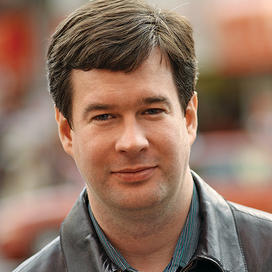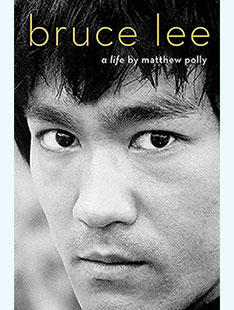
At age 12, Kansas-raised Matthew Polly ’95 saw something that changed his life: the 1973 movie Enter the Dragon, starring Bruce Lee. The film sparked a lifelong obsession with martial arts that took him to China during his senior year at Princeton to study kung fu at the famous Shaolin Temple and motivated him to pen two books on the subject. Polly spent nearly a decade researching his third tome: a biography of Lee, the man who kicked off not just Polly’s fascination, but that of millions worldwide. Before Enter the Dragon, there were a few martial-arts schools in the United States; by the 1990s, Polly notes, 20 million Americans were studying the discipline.
Bruce Lee died at 32, one month before the movie’s release, which makes him a strange kind of celebrity — one whose fame, outside Southeast Asia, came posthumously. For that reason, Americans know little about him, despite his iconic status. “Many people think of him as just this martial artist who accidentally made a couple movies. But he was an actor first, then merged those two passions,” says Polly.

Bruce Lee: A Life (Simon & Schuster) fills in those details. It explores Lee’s early career as a child actor in colonial Hong Kong, following in the footsteps of his father, a well-known Cantonese opera and movie performer; and his young adulthood in Seattle and then Hollywood, struggling to make ends meet. Lee’s intensity and charisma were apparent from the start.
In Hollywood, Lee partied with Steve McQueen; bought a Porsche and became known for driving too fast; and landed minor TV roles, most famously as Kato, the Green Hornet’s sidekick. Eventually, Lee returned to Hong Kong to act — he needed the money — and became a massive star there. That attracted the attention of Warner Bros. studios, which offered him Enter the Dragon.
Lee became the first Chinese-American man to star in a Hollywood movie, during a time when Asians were portrayed by white actors wearing eye makeup. “It was an unbelievably impossible thing to do at that time, given the racism,” says Polly. “For years he was denied even minor parts. That he kept at it for so long until he succeeded is probably the most remarkable thing about him as a human.”
Then came his tragic — and mysterious — death, from cerebral edema, which Polly argues was caused by heat stroke. When it happened, Lee was booked to appear on The Tonight Show Starring Johnny Carson, Warner Bros. had offered him a five-movie deal, and Hollywood was abuzz over his obvious star power. “He was right on the edge of being up there with Steve McQueen and all the other great stars,” says Polly. “It makes you wonder what could have been.”











No responses yet